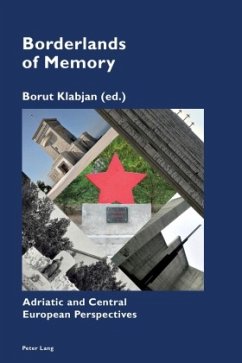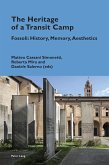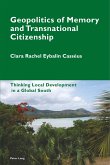The complex intertwining of history, memory, space, place and identity in borderlands is the topic of this edited collection. Using a transnational analysis of multi-layered cases from the northern Adriatic and Central Europe, the essays address fundamental questions in the history of the twentieth century. The geographical areas under scrutiny have experienced regular re-drawings of political borders, reconfigurations of state orders, and changes in ideological frameworks. The symbolic boundaries that formed the mental map of the modern world were located here: West vs East, Latin vs German vs Slavic, European vs Oriental, antifascism vs fascism, capitalism vs communism, etc. These symbolic dimensions influence the local reality, intersecting with international developments and global processes. How these changes in ideology, state and the resulting spatial politics have functioned within varying historical frameworks, and what we can learn from their changing meanings, is the main focus of this volume. Its content represents a privileged perspective on understanding ruptures as well as continuities in memory cultures, commemorative practices, situational identifications and the varying politics of the past in European borderlands.
«This timely volume puts the latest conceptual and methodological insights from border studies in service to understanding the lands of the former Habsburg Empire, a region constituted by overlapping cultural, linguistic and political boundaries. Covering a wide range of cultural products, such as film, novels, architecture and monuments, the essays illuminate the enduring legacies of historical bordermaking processes in both memory and the built environment. An important contribution to literatures on the Adriatic, Central Europe and borderlands more generally that showcases current work by preeminent scholars in the field.» (Pamela Ballinger, Professor of History, Fred Cuny Chair in the History of Human Rights, University of Michigan)
«The volume fruitfully sits at the crossroads of memory studies, nationalism studies and border studies. The mnemonic entanglements of late imperial times, the World Wars, the Cold War and its aftermath are vividly made palpable and represent a quintessential pars pro toto of European memoryscapes of the twentieth century.» (Sabine Rutar, Leibniz-Institute for East and Southeast European Studies, Regensburg)
«The volume fruitfully sits at the crossroads of memory studies, nationalism studies and border studies. The mnemonic entanglements of late imperial times, the World Wars, the Cold War and its aftermath are vividly made palpable and represent a quintessential pars pro toto of European memoryscapes of the twentieth century.» (Sabine Rutar, Leibniz-Institute for East and Southeast European Studies, Regensburg)








